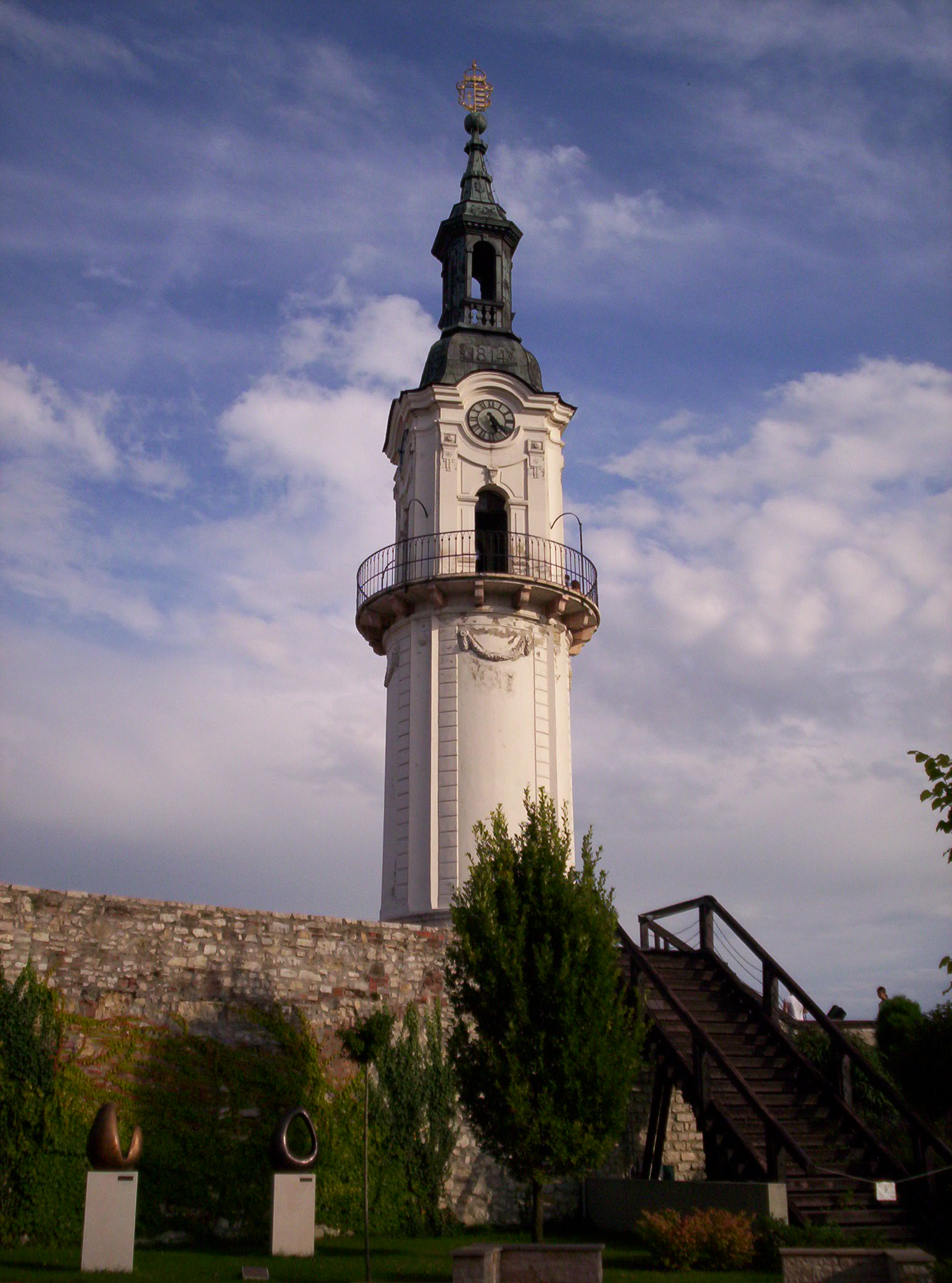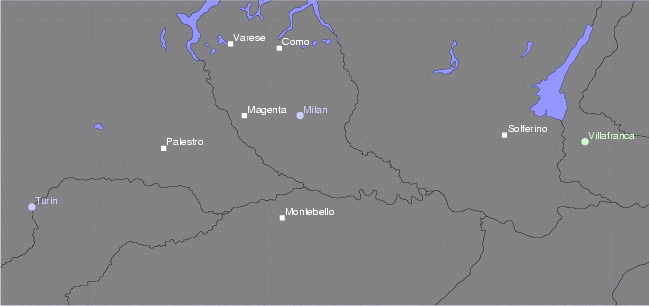|
Leopold Óváry
Lipót Óváry, also known in English as Leopold Óváry (31 December 1833, Veszprém - 4 April 1919, Budapest) was a Hungarian historian and custodian of the Hungarian state archives. He took part in the Hungarian struggle for liberty in 1848 and in the Italian war of independence in 1859. After the political troubles had been settled he devoted himself to the study of history, in which he soon achieved distinction. In 1876 he was appointed assistant custodian of the state archives, in 1904 chief custodian; and in 1892 he was elected a member of the Hungarian Academy of Sciences. A knighthood of the Order of the Crown of Italy was conferred upon him. Óváry's writings had considerable political influence, especially those attacking the anti-Hungarian Romanian propaganda in Italy. His chief works include: ''Nápolyi Történelmi Kutatások'' (Budapest, 1874); ''III. Pál Pápa s Farnese Sándor Bibornok Magyarországra Vonatkozó Diplomácziai Levelezései'' (ib. 1879); ''Okle ... [...More Info...] [...Related Items...] OR: [Wikipedia] [Google] [Baidu] |
Romania
Romania is a country located at the crossroads of Central Europe, Central, Eastern Europe, Eastern and Southeast Europe. It borders Ukraine to the north and east, Hungary to the west, Serbia to the southwest, Bulgaria to the south, Moldova to the east, and the Black Sea to the southeast. It has a mainly continental climate, and an area of with a population of 19 million people. Romania is the List of European countries by area, twelfth-largest country in Europe and the List of European Union member states by population, sixth-most populous member state of the European Union. Europe's second-longest river, the Danube, empties into the Danube Delta in the southeast of the country. The Carpathian Mountains cross Romania from the north to the southwest and include Moldoveanu Peak, at an altitude of . Bucharest is the country's Bucharest metropolitan area, largest urban area and Economy of Romania, financial centre. Other major urban centers, urban areas include Cluj-Napoca, Timiș ... [...More Info...] [...Related Items...] OR: [Wikipedia] [Google] [Baidu] |
Historians From Austria-Hungary
A historian is a person who studies and writes about the past and is regarded as an authority on it. Historians are concerned with the continuous, methodical narrative and research of past events as relating to the human species; as well as the study of all history in time. Some historians are recognized by publications or training and experience.Herman, A. M. (1998). Occupational outlook handbook: 1998–99 edition. Indianapolis: JIST Works. Page 525. "Historian" became a professional occupation in the late nineteenth century as research universities were emerging in Germany and elsewhere. Objectivity Among historians Ancient historians In the 19th century, scholars used to study ancient Greek and Roman historians to see how generally reliable they were. In recent decades, however, scholars have focused more on the constructions, genres, and meanings that ancient historians sought to convey to their audiences. History is always written with contemporary concerns and ancient hist ... [...More Info...] [...Related Items...] OR: [Wikipedia] [Google] [Baidu] |
Hungarian Jews
The history of the Jews in Hungary dates back to at least the Kingdom of Hungary, with some records even predating the Hungarian conquest of the Carpathian Basin in 895 CE by over 600 years. Written sources prove that Jewish communities lived in the medieval Kingdom of Hungary and it is even assumed that several sections of the heterogeneous Hungarian tribes practiced Judaism. Jewish officials served the king during the early 13th century reign of Andrew II. From the second part of the 13th century, the general religious tolerance decreased and Hungary's policies became similar to the treatment of the Jewish population in Western Europe. The Ashkenazi of Hungary were fairly well integrated into Hungarian society by the time of the First World War. By the early 20th century, the community had grown to constitute 5% of Hungary's total population and 23% of the population of the capital, Budapest. Jews became prominent in science, the arts and business. By 1941, over 17% of Buda ... [...More Info...] [...Related Items...] OR: [Wikipedia] [Google] [Baidu] |
1919 Deaths
Events January * January 1 ** The Czechoslovak Legions occupy much of the self-proclaimed "free city" of Bratislava, Pressburg (later Bratislava), enforcing its incorporation into the new republic of Czechoslovakia. ** HMY Iolaire, HMY ''Iolaire'' sinks off the coast of the Hebrides; 201 people, mostly servicemen returning home to Lewis and Harris, are killed. * January 2–January 22, 22 – Russian Civil War: The Red Army's Caspian-Caucasian Front begins the Northern Caucasus Operation (1918–1919), Northern Caucasus Operation against the White Army, but fails to make progress. * January 3 – The Faisal–Weizmann Agreement is signed by Faisal I of Iraq, Emir Faisal (representing the Arab Kingdom of Hejaz) and Zionism, Zionist leader Chaim Weizmann, for Arab–Jewish cooperation in the development of a Jewish homeland in Palestine (region), Palestine, and an Arab nation in a large part of the Middle East. * January 5 – In Germany: ** Spartacist uprising in ... [...More Info...] [...Related Items...] OR: [Wikipedia] [Google] [Baidu] |
1833 Births
Events January–March * January 3 – The United Kingdom reasserts British sovereignty over the Falkland Islands in the South Atlantic Ocean. * February 6 (January 25 on the Greek calendar) – Prince Otto Friedrich Ludwig of Bavaria arrives at the port of Nafplio to assume the title King Othon the First of Greece * February 16 – The United States Supreme Court hands down its landmark decision of Barron v. Mayor and City Council of Baltimore. April–June * April 1 – General Antonio López de Santa Anna is elected President of Mexico by the legislatures of 16 of the 18 Mexican states. During his frequent absences from office to fight on the battlefield, Santa Anna turns the duties of government over to his vice president, Valentín Gómez Farías. * April 18 – Over 300 delegates from England, Scotland, Wales and Ireland travel to the office of the Prime Minister, the Earl Grey, to call for the immediate abolition of slavery throughout the British Empire. * May 6 ... [...More Info...] [...Related Items...] OR: [Wikipedia] [Google] [Baidu] |
Christianity
Christianity is an Abrahamic monotheistic religion, which states that Jesus in Christianity, Jesus is the Son of God (Christianity), Son of God and Resurrection of Jesus, rose from the dead after his Crucifixion of Jesus, crucifixion, whose coming as the Messiah#Christianity, messiah (Christ (title), Christ) was Old Testament messianic prophecies quoted in the New Testament, prophesied in the Old Testament and chronicled in the New Testament. It is the Major religious groups, world's largest and most widespread religion with over 2.3 billion followers, comprising around 28.8% of the world population. Its adherents, known as Christians, are estimated to make up a majority of the population in Christianity by country, 157 countries and territories. Christianity remains Christian culture, culturally diverse in its Western Christianity, Western and Eastern Christianity, Eastern branches, and doctrinally diverse concerning Justification (theology), justification and the natur ... [...More Info...] [...Related Items...] OR: [Wikipedia] [Google] [Baidu] |
Italy
Italy, officially the Italian Republic, is a country in Southern Europe, Southern and Western Europe, Western Europe. It consists of Italian Peninsula, a peninsula that extends into the Mediterranean Sea, with the Alps on its northern land border, as well as List of islands of Italy, nearly 800 islands, notably Sicily and Sardinia. Italy shares land borders with France to the west; Switzerland and Austria to the north; Slovenia to the east; and the two enclaves of Vatican City and San Marino. It is the List of European countries by area, tenth-largest country in Europe by area, covering , and the third-most populous member state of the European Union, with nearly 59 million inhabitants. Italy's capital and List of cities in Italy, largest city is Rome; other major cities include Milan, Naples, Turin, Palermo, Bologna, Florence, Genoa, and Venice. The history of Italy goes back to numerous List of ancient peoples of Italy, Italic peoples—notably including the ancient Romans, ... [...More Info...] [...Related Items...] OR: [Wikipedia] [Google] [Baidu] |
Anti-Hungarian Sentiment
Anti-Hungarian sentiment (also known as Hungarophobia, Anti-Hungarianism, Magyarophobia or Antimagyarism) is dislike, distrust, discrimination, or xenophobia directed against the Hungarians. It can involve hatred, grievance, distrust, intimidation, fear, and hostility towards the Hungarian people, language and culture. History During the existence of the Kingdom of Hungary and Croatia, the Banate of Bosnia was accused of holding the alleged Cathar anti-pope Nicetas. Given that the Kingdom of Hungary and Croatia was under heavy Catholic influence, and Bosnia had a decentralized religious practice, Pope Honorius III would preach about invading Bosnia to pacify Nicetas, whilst Hungary would be able to incorporate Bosnia into its control. Later, in 1235, Hungary, with the justification of Pope Gregory IX would launch the Bosnian Crusade in order to subdue the Banate under its control. However, in 1241, the Mongols invaded Hungary. As a result the Hungarian troops abandoned the crus ... [...More Info...] [...Related Items...] OR: [Wikipedia] [Google] [Baidu] |
Veszprém
Veszprém (; , , , ) is one of the oldest urban areas in Hungary, and a city with county rights. It lies approximately north of the Lake Balaton. It is the administrative center of the county of the same name. Etymology The city's name derives from the West Slavic-language personal name ''Bezprem'' or '' Bezprym'' (Proto-Slavic ''Bezprěmъ'') which translates literally to "stubborn", "self-confident, not willing to retreat". ''Besprem'' (before 1002), ''Vezprem'' (1086), ''Bezpremensis'' (1109). The form ''Vezprem'' originates in early medieval scribal habits and frequent exchange of ''B'' and ''V'' under the influence of the Greek language. Location and legend The city can be reached via the M7 highway and Road 8. It can also be reached from Győr via Road 82 and from Székesfehérvár via Road 8. According to a local legend, Veszprém was founded on seven hills. The seven hills are Várhegy (Castle Hill), Benedek-hegy (St. Benedict Hill), Jeruzsálem-hegy (Jerusalem Hill ... [...More Info...] [...Related Items...] OR: [Wikipedia] [Google] [Baidu] |
Order Of The Crown Of Italy
The Order of the Crown of Italy ( or OCI) was founded as a national order in 1868 by King Victor Emmanuel II of Italy, Vittorio Emanuele II, to commemorate Italian unification, the unification of Italy in 1861. It was awarded in five degrees for civilian and military merit. Today the Order of the Crown has been replaced by the Order of Merit of Savoy and is still conferred on new knights by the current head of the house of Emanuele Filiberto, Prince of Venice. The order has been suppressed by law since the birth of the Italian Republic, foundation of the Republic in 1946. However, Umberto II of Italy, Umberto II did not abdicate his position as ''fons honorum'' and it remained under his Grand Mastership as a dynastic order. While the continued use of those decorations conferred prior to 1951 is permitted in Italy, the crowns on the ribbons issued before 1946 must be substituted for as many five pointed stars on military uniforms. Grades The various degrees of the order, with c ... [...More Info...] [...Related Items...] OR: [Wikipedia] [Google] [Baidu] |
Austro-Sardinian War
The Second Italian War of Independence, also called the Sardinian War, the Austro-Sardinian War, the Franco-Austrian War, or the Italian War of 1859 (Italian: ''Seconda guerra d'indipendenza italiana''; German: ''Sardinischer Krieg''; French: ''Campagne d'Italie''), was fought by the Second French Empire and the Kingdom of Sardinia against the Austrian Empire in 1859 and played a crucial part in the process of Italian Unification. A year prior to the war, in the Plombières Agreement, France agreed to support Sardinia's efforts to expel Austria from Italy in return for territorial compensation in the form of the Duchy of Savoy and the County of Nice. The two states signed a military alliance in January 1859. Sardinia mobilised its army on 9 March 1859, and Austria mobilized on 9 April. On 23 April, Austria delivered an ultimatum to Sardinia demanding its demobilization. Upon Sardinia's refusal, the war began on 26 April. Austria invaded Sardinia three days later, and France dec ... [...More Info...] [...Related Items...] OR: [Wikipedia] [Google] [Baidu] |







